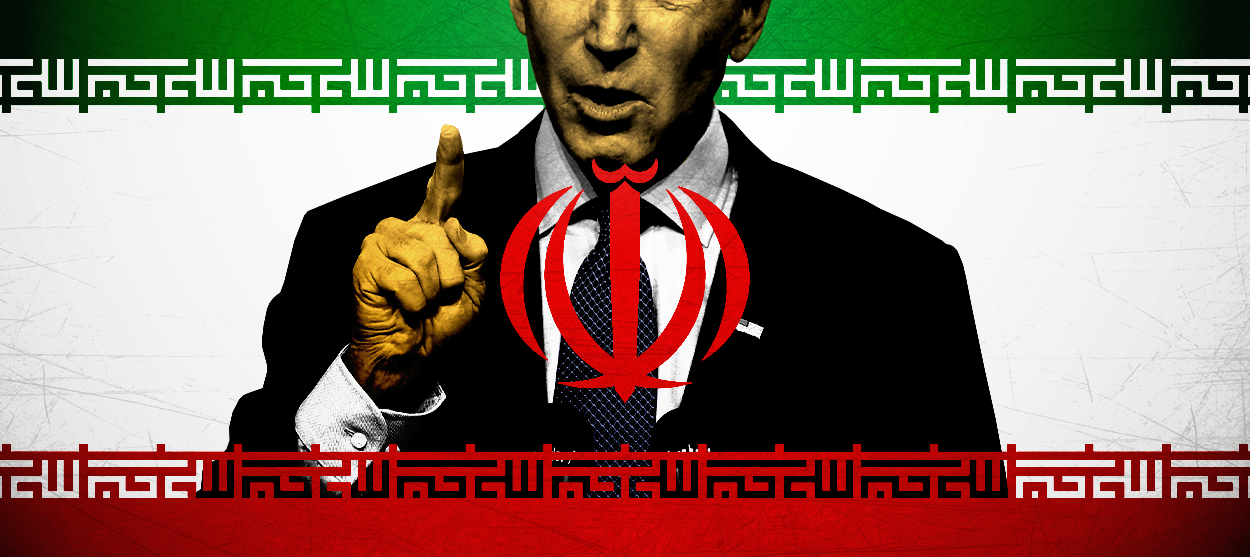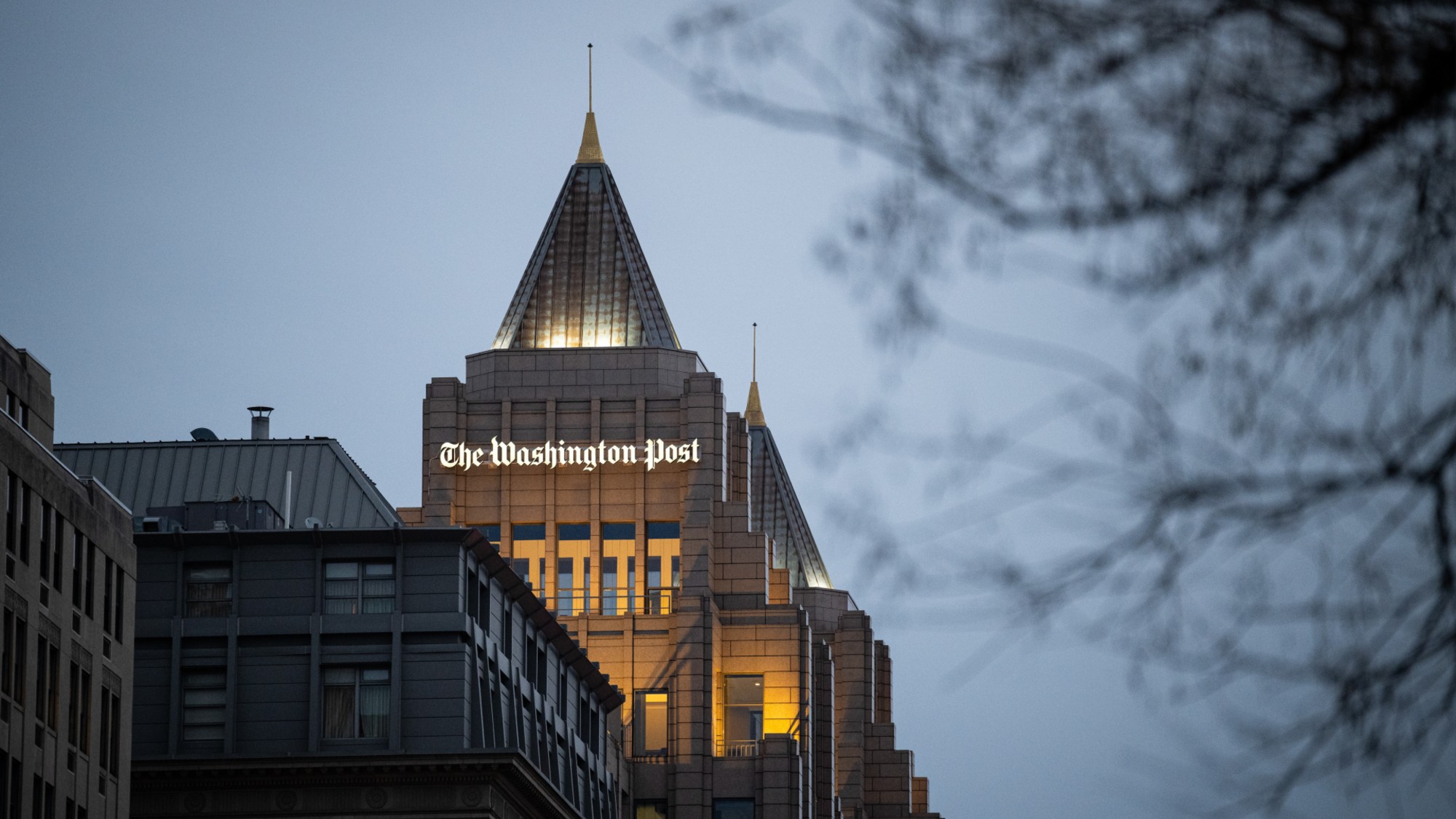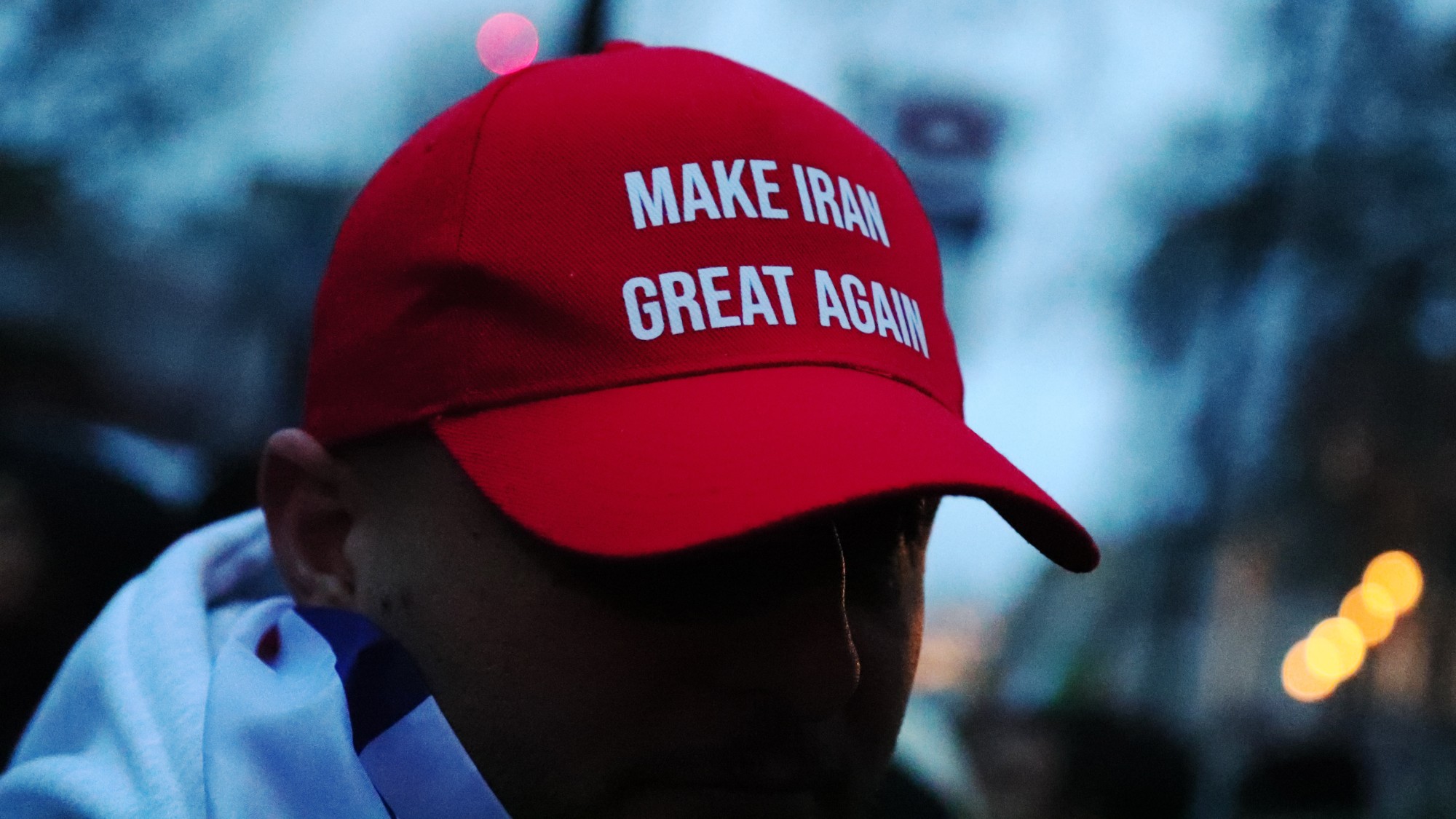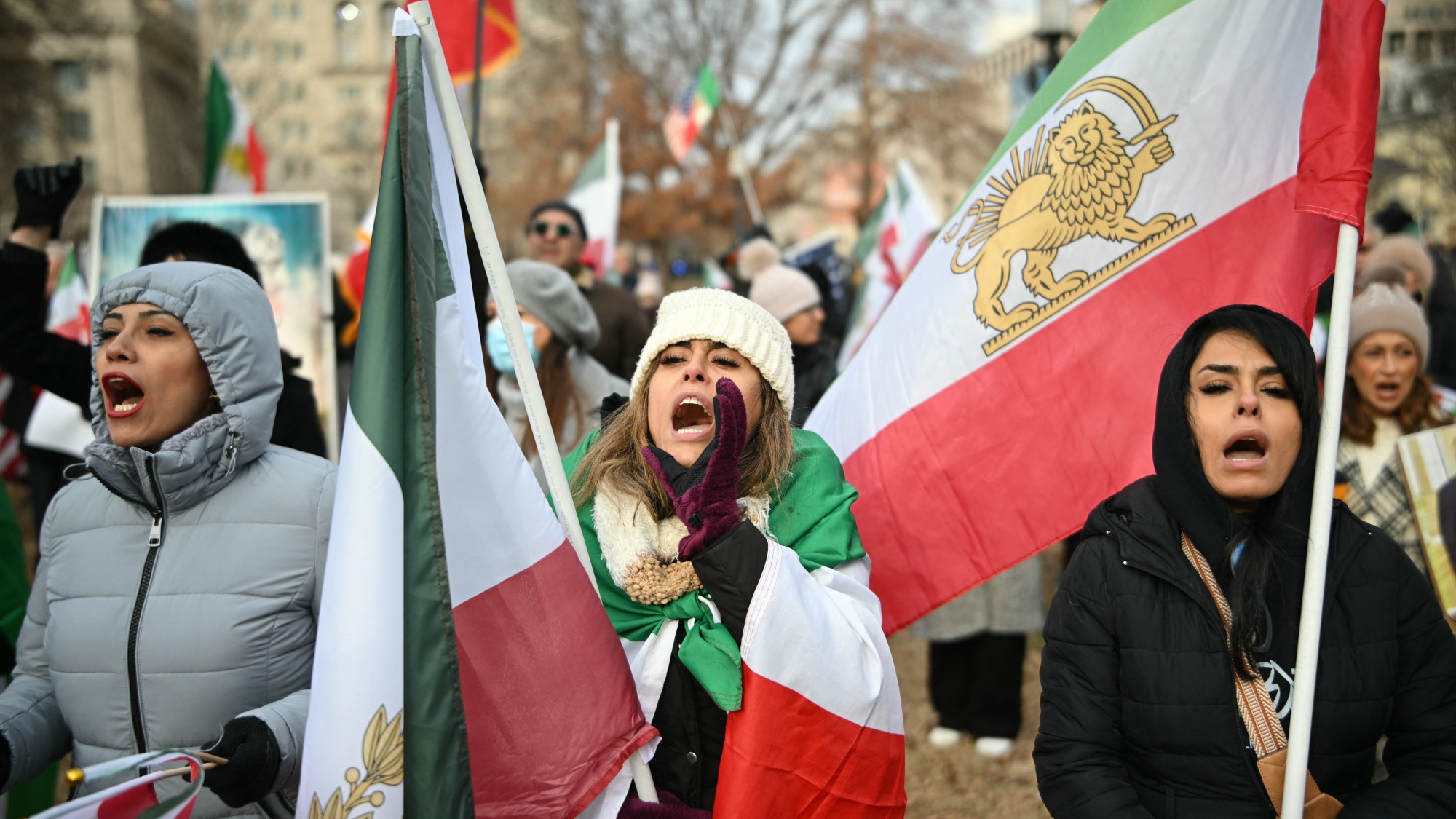What the U.S. owes Iran
Biden should lift sanctions now as a show of good faith


A free daily email with the biggest news stories of the day – and the best features from TheWeek.com
You are now subscribed
Your newsletter sign-up was successful
When campaigning in 2020, Joe Biden promised that he would make every effort to re-join the Iran nuclear deal. But some 50 days into his presidency, progress is stalled, and the deal is reportedly on the verge of collapse.
Now that he is president, Biden should grant Iran broad sanctions relief immediately, both as a show of good faith and for the sake of humanitarian relief, as part of negotiations to rejoin the deal. The U.S. has inflicted terrific damage on the Iranian government and the Iranian people, which badly exacerbated the carnage of the coronavirus pandemic there. America owes it to them.
The diplomatic sticking point here is that Biden is insisting on Iran fully recommitting to the deal before any sanctions are lifted, while Iran is asking for the opposite. As Biden wrote in a CNN op-ed in September last year, "If Iran returns to strict compliance with the nuclear deal, the United States would rejoin the agreement as a starting point for follow-on negotiations." By contrast, Iranian President Rouhani said Wednesday: "America was first in breaking with the agreement and it should be the first to return to it."
The Week
Escape your echo chamber. Get the facts behind the news, plus analysis from multiple perspectives.

Sign up for The Week's Free Newsletters
From our morning news briefing to a weekly Good News Newsletter, get the best of The Week delivered directly to your inbox.
From our morning news briefing to a weekly Good News Newsletter, get the best of The Week delivered directly to your inbox.
Any case for which of these two positions is correct must depend on one's view of diplomatic history and the broader strategic context. On the first point, it is absolutely inarguable that the United States has been badly in the wrong. Iran joined the nuclear deal in good faith, and was living up to its end of the bargain when President Trump abruptly betrayed that trust in 2018 (apparently because of a vindictive hatred of everything President Obama did and the encouragement of various deranged warmongers). Trump proceeded to assassinate Iranian leader Qassem Soleimani — who was roughly akin to being both secretary of state and chairman of the joint chiefs — on Iraqi soil, no less. That infuriated both Iranian and Iraqi leaders and sparked a cycle of tit-for-tat violence that continues to this day.
When Trump reimposed sanctions on Iran, that basically wrecked its economy. Inflation spiked, and severe shortages of numerous goods quickly developed — especially medical supplies. This terribly worsened the coronavirus pandemic there, as hospitals struggled to treat COVID-19 patients without proper protective gear or vital equipment. Certainly thousands have died as direct result of American acts.
Moreover, Iran has a lot of historical reasons to distrust America. In 1988 U.S. forces shot down an Iranian airliner and killed 290 people. The U.S. supported Iraq with money, training, and diplomatic cover when it invaded Iran in 1980, leading to eight years of gruesome trench warfare that eventually killed somewhere between 300,000 and a million Iranians. And, of course, the CIA backed a coup in 1953 against the democratic government of Iran, after which its people endured 20 years of brutal dictatorship.
Finally, on the question of the strategic context, the plain fact is that Iran barely matters to serious U.S. interests, no matter how you define them. It's a medium-sized, medium-income country halfway around the planet. It produces roughly a quarter as much oil as America itself. It has shown no inclination to strike at U.S. forces except those that are right on its doorstep (for no good reason), shooting at its top officials (also for no good reason). Imagine how Americans might feel if Iran had massive military outposts in Canada and Mexico all across the length of those two borders, was strangling our economy with sanctions, and occasionally blew up members of Biden's cabinet.
A free daily email with the biggest news stories of the day – and the best features from TheWeek.com
In short, there is every reason on Earth to cut Iran some slack. America broke its promise — as Biden himself wrote, Trump "recklessly tossed away a policy that was working to keep America safe," — and so America should demonstrate some good faith. It's literally the least we could do. And contrary to arguments from bloodthirsty imperialist warmongers, doing so would actually help the U.S. by reducing the likelihood of getting bogged down in another unwinnable war 7,000 miles away.
It's not hard to see why the Biden administration is hesitating here. The reason is the imperialist D.C. Blob that has been hell-bent on war with Iran for years, and the lobbying efforts of Israel and Saudi Arabia. Those forces are very influential in Congress, which is why senators grilled Wendy Sherman, Biden's nominee for deputy secretary for state, about her role as chief negotiator for the nuclear deal during her recent confirmation hearing. Biden himself has long been implicated in this dynamic.
Biden's recent decision to let Saudi Crown Prince Mohammad bin Salman skate on assassinating Washington Post columnist Jamal Khashoggi illustrates this perfectly. His op-ed on Iran is full of stern language about the "challenges the regime in Iran poses to America's security interests[.]" But with Saudi Arabia we have an "ally" that is objectively harmful to U.S. interests (even their oil is a massive net negative because of climate change), up to and including ordering the brutal murder of a prominent legal U.S. resident for criticizing bin Salman's repressive dictatorship. Yet because bin Salman has spread hundreds of millions of dollars in legal bribes around D.C., and because a great many American elites are preposterously credulous and/or corrupt, he gets away with it.
All this is a test case for Biden's declared intention to chart a new course in foreign policy. For that to happen he will sooner or later have stand up to the imperial war machine, and the corrupt hired guns of foreign countries that want to treat the U.S. military as their own personal plaything. If he won't do that, his record on foreign policy will look basically similar to Donald Trump's.
Ryan Cooper is a national correspondent at TheWeek.com. His work has appeared in the Washington Monthly, The New Republic, and the Washington Post.
-
 How the FCC’s ‘equal time’ rule works
How the FCC’s ‘equal time’ rule worksIn the Spotlight The law is at the heart of the Colbert-CBS conflict
-
 What is the endgame in the DHS shutdown?
What is the endgame in the DHS shutdown?Today’s Big Question Democrats want to rein in ICE’s immigration crackdown
-
 ‘Poor time management isn’t just an inconvenience’
‘Poor time management isn’t just an inconvenience’Instant Opinion Opinion, comment and editorials of the day
-
 Witkoff and Kushner tackle Ukraine, Iran in Geneva
Witkoff and Kushner tackle Ukraine, Iran in GenevaSpeed Read Steve Witkoff and Jared Kushner held negotiations aimed at securing a nuclear deal with Iran and an end to Russia’s war in Ukraine
-
 ‘The mark’s significance is psychological, if that’
‘The mark’s significance is psychological, if that’Instant Opinion Opinion, comment and editorials of the day
-
 ‘My donation felt like a rejection of the day’s politics’
‘My donation felt like a rejection of the day’s politics’Instant Opinion Opinion, comment and editorials of the day
-
 How Iran protest death tolls have been politicised
How Iran protest death tolls have been politicisedIn the Spotlight Regime blames killing of ‘several thousand’ people on foreign actors and uses videos of bodies as ‘psychological warfare’ to scare protesters
-
 ‘It may portend something more ominous’
‘It may portend something more ominous’Instant Opinion Opinion, comment and editorials of the day
-
 What are Donald Trump’s options in Iran?
What are Donald Trump’s options in Iran?Today's Big Question Military strikes? Regime overthrow? Cyberattacks? Sanctions? How can the US help Iranian protesters?
-
 Unrest in Iran: how the latest protests spread like wildfire
Unrest in Iran: how the latest protests spread like wildfireIn the Spotlight Deep-rooted discontent at the country’s ‘entire regime’ and economic concerns have sparked widespread protest far beyond Tehran
-
 The billionaires’ wealth tax: a catastrophe for California?
The billionaires’ wealth tax: a catastrophe for California?Talking Point Peter Thiel and Larry Page preparing to change state residency
